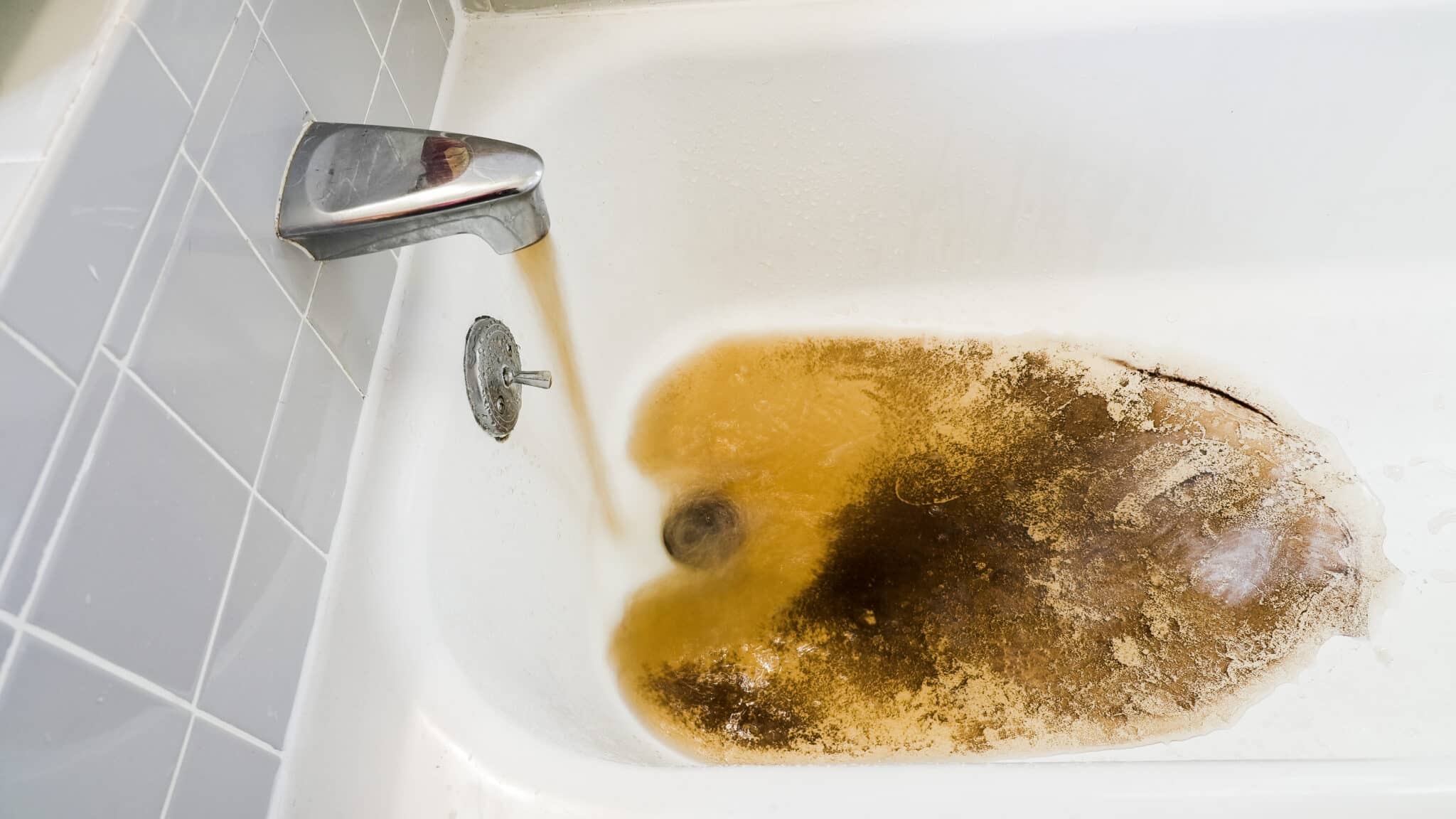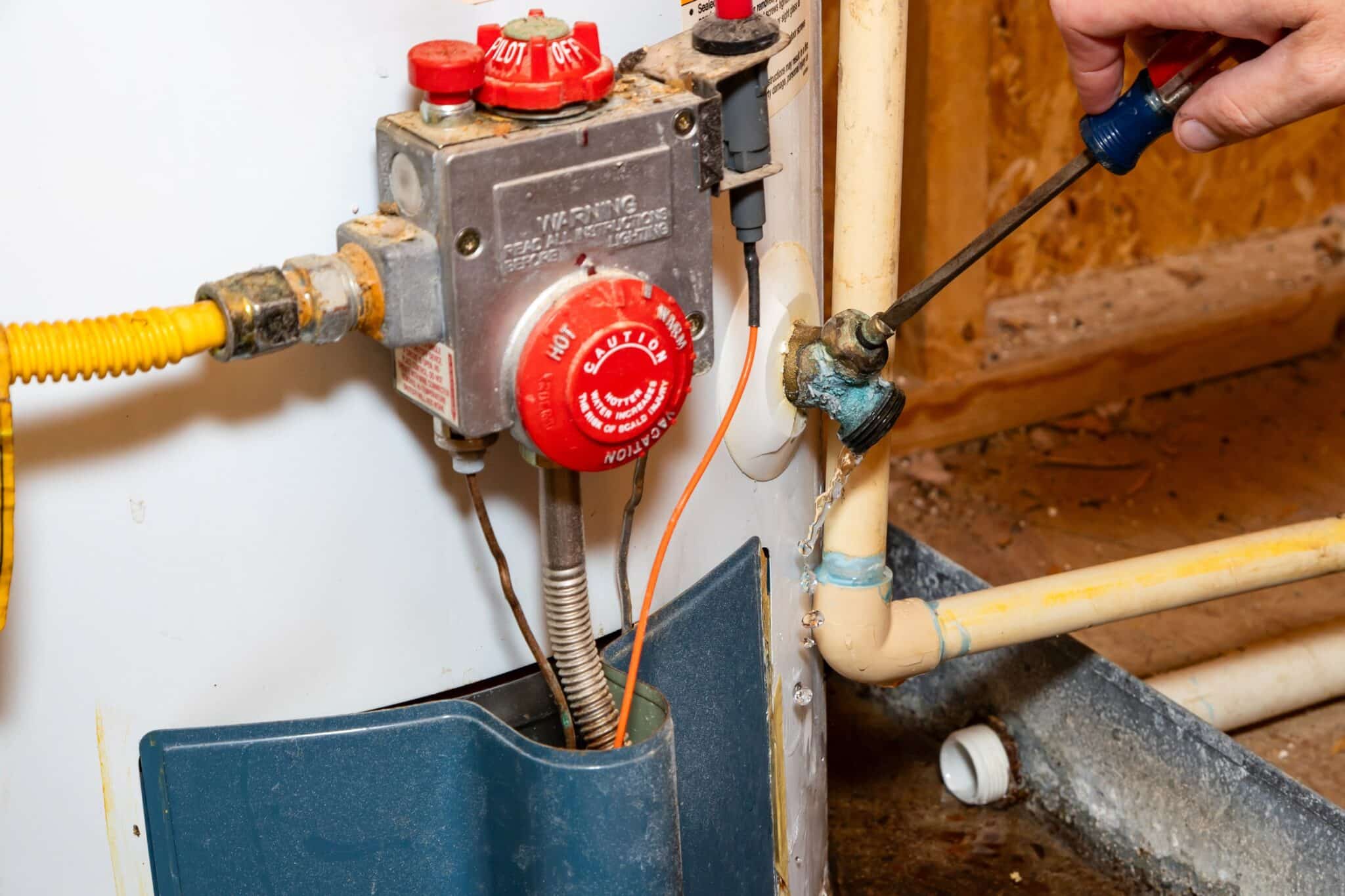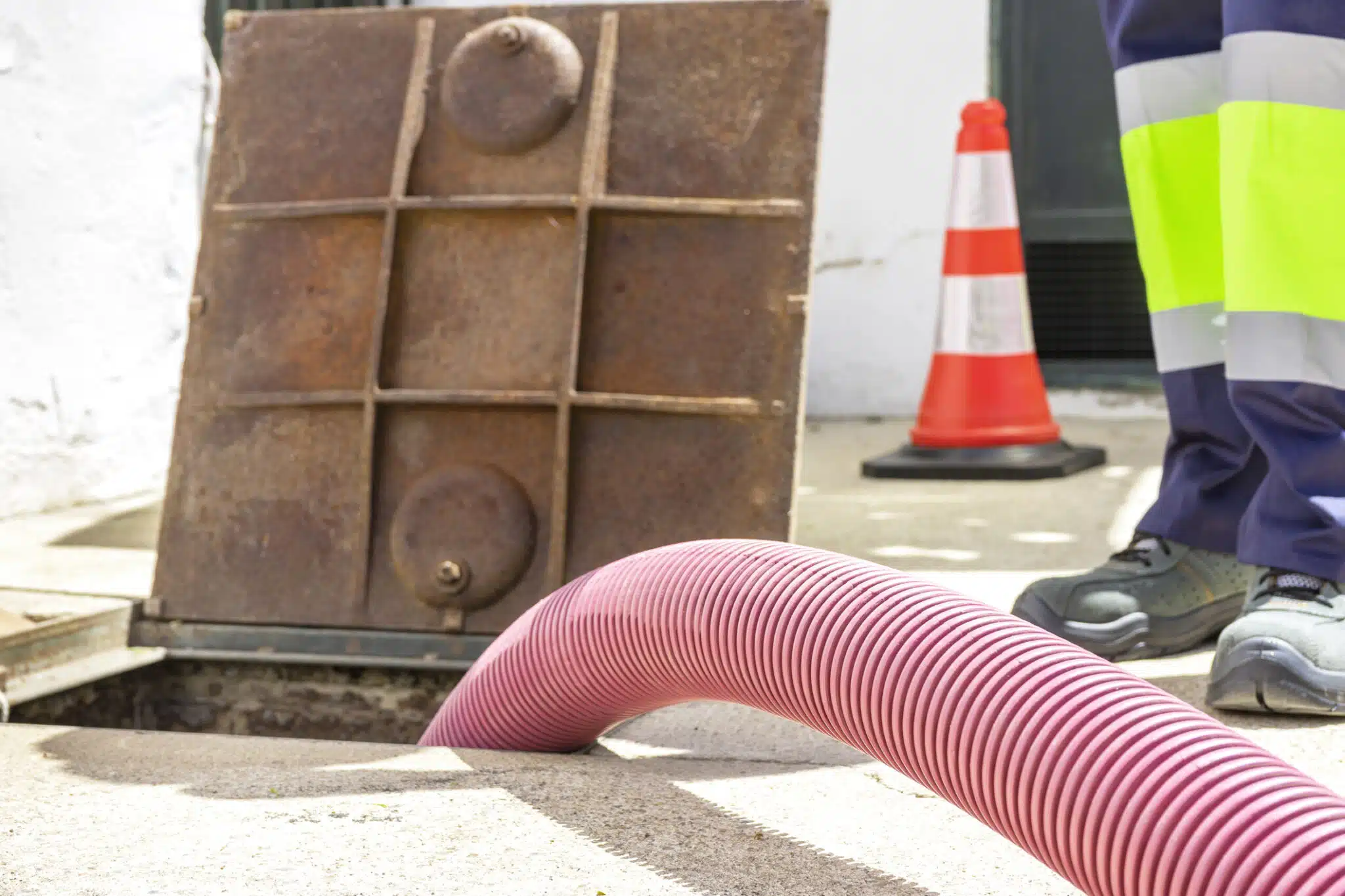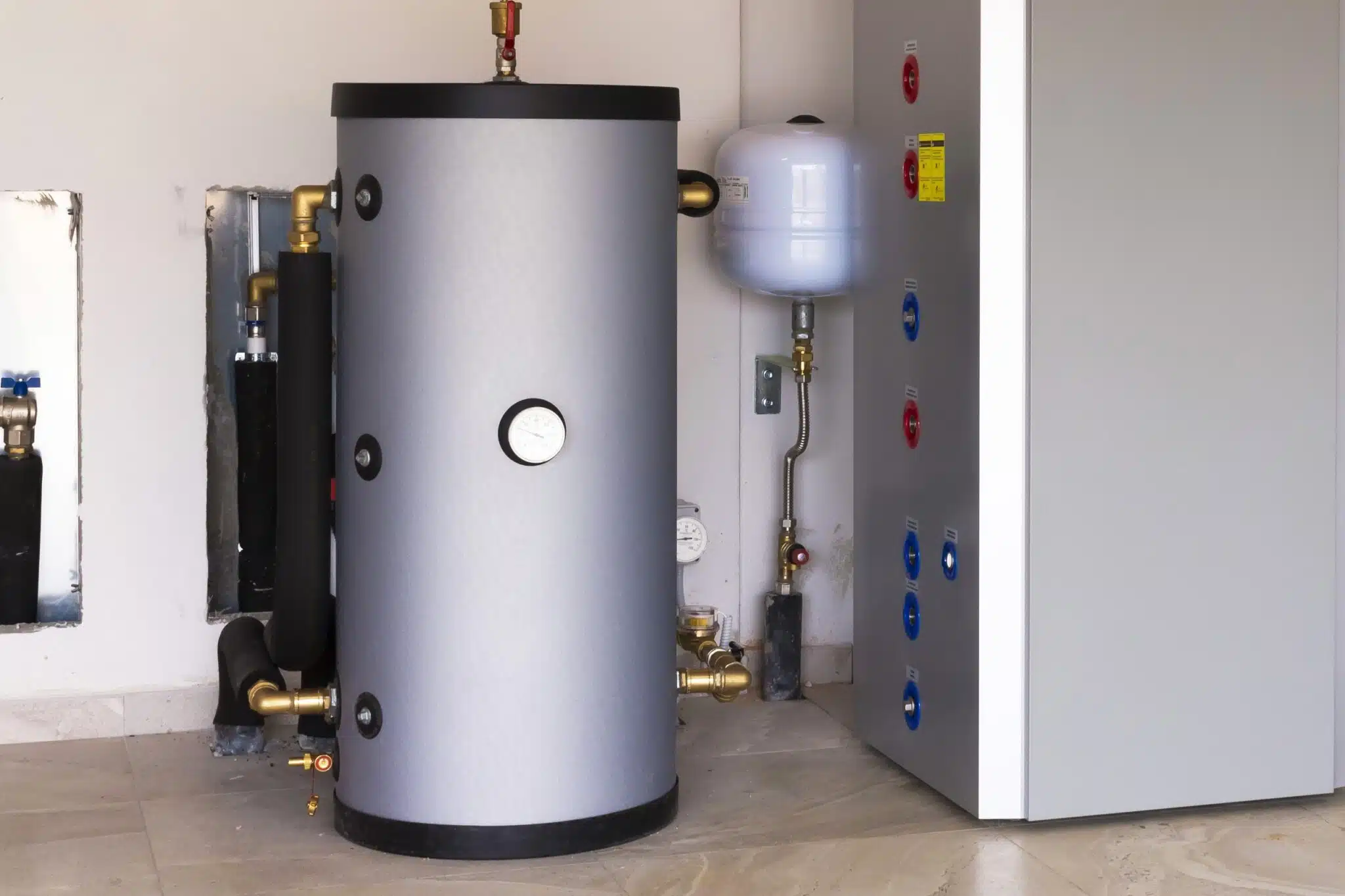Will your water heater keep up this winter, or is it on the verge of failure? Sudden cold showers, strange noises, or rusty water signal trouble ahead. Leaks and skyrocketing energy bills mean your system is struggling. Ignoring these warnings could leave you without hot water. Do not wait—ensure your water heater is winter-ready before it is too late.
Inconsistent Water Temperature in Freezing Conditions
A hot shower turning cold without warning is more than an inconvenience—it is a sign that your water heater may be failing. Michigan’s freezing winters put extra stress on heating systems, making temperature fluctuations even worse. A malfunctioning thermostat, sediment buildup, or a worn-out heating element can all contribute to sudden changes in water temperature. As your unit struggles to keep up with demand, these issues become more frequent. Ignoring the warning signs could leave you without hot water when you need it most.
Sediment buildup inside the tank is one of the most common reasons for inconsistent water temperatures. Over time, minerals settle at the bottom, blocking heat transfer and causing unpredictable hot and cold bursts. A damaged dip tube can also misdirect cold water, leading to improper mixing and sudden temperature shifts. If the heating element is failing, your water heater may not generate enough heat, leaving you with lukewarm water. These problems force your system to work harder, reducing efficiency and increasing energy costs.
Unstable temperatures are not just frustrating—they indicate deeper mechanical issues. A properly functioning water heater should deliver consistent warmth, even in extreme cold. If adjusting the thermostat does not help, professional service may be necessary. Do not wait for freezing water to disrupt your routine—schedule an inspection now to ensure reliable hot water all winter long.
Unusual Noises from Your Water Heater
Your water heater should operate quietly, but odd sounds can signal potential problems. Ignoring these noises may lead to costly repairs or system failure. Understanding the source of these sounds can help you address minor issues before they become serious. Here are seven unusual noises your water heater might make and what they could mean.
-
Popping Sounds
Sediment buildup at the bottom of the tank traps water, creating steam bubbles that burst and produce a popping noise. Flushing the tank can help.
-
Rumbling Noises
Expanding and contracting metal parts inside the tank can cause rumbling. This often occurs when sediment buildup forces the heater to work harder.
-
Screeching or Whistling
A partially closed valve or restricted water flow can create high-pressure whistling sounds. Checking the inlet and outlet valves might resolve the issue.
-
Banging or Hammering
Sudden water flow changes can cause pressure fluctuations, leading to loud banging noises known as water hammers. Installing an arrestor can reduce the impact.
-
Crackling Sounds
Gas-powered water heaters may produce crackling noises due to condensation dripping onto the burner. This is usually harmless but worth monitoring.
-
Humming Noises
Loose heating elements in electric units can vibrate, creating a humming sound. Tightening them often eliminates the noise.
-
Ticking or Tapping
Thermal expansion in pipes or fluctuating pressure can cause ticking sounds. This is generally normal but can be minimized with an expansion tank.

Water Discoloration and Rusty Appearance
Noticing rusty or discolored water from your taps? Your water heater may be the culprit. Clean, clear water is essential, and any brown, red, or yellow tint signals a problem. This issue often worsens in winter as your water heater works harder to meet increased demand. Ignoring water discoloration can lead to leaks, poor water quality, or even complete system failure.
-
Sediment Buildup in the Tank
Over time, minerals and debris settle at the bottom of your water heater tank. When heated, this sediment can mix with the water, giving it a murky, rusty appearance. In cold Michigan winters, sediment buildup can worsen, reducing efficiency and causing unexpected breakdowns. Flushing the tank may help, but severe accumulation requires professional maintenance.
-
Internal Tank Corrosion
A water heater contains an anode rod designed to prevent rust, but over time, this rod deteriorates. Once it fails, the metal inside the tank begins to corrode, leading to discolored water. Corrosion weakens the tank walls, increasing the risk of leaks or bursts. If left unaddressed, the only solution may be a full system replacement.
-
Aging Water Heater Issues
Most water heaters last between 8 to 12 years before internal rust becomes a serious problem. If your unit is over a decade old and producing rusty water, internal corrosion may be to blame. Replacing an aging system before it fails completely can prevent unexpected disruptions during Michigan’s freezing winter months.
When to Call a Professional
If rusty water only appears when using hot water, your water heater is likely the source. However, if both hot and cold water are discolored, your home’s plumbing may be corroding instead. A professional inspection can identify the cause and recommend the best solution. Addressing the issue early ensures clean, safe water and reliable performance all winter long.
Water Leaks Around the Tank or Pipes
Water leaks around your water heater can lead to costly damage, especially in Michigan’s freezing winters. Even a slow drip can escalate, causing mold, structural issues, and rising water bills. Cold temperatures add stress to plumbing, making small leaks worse. Identifying the cause early can help you avoid unexpected breakdowns.
-
Corrosion and Rust Damage
As your water heater ages, sediment buildup and rust weaken the tank. Corrosion slowly eats through the metal, eventually causing cracks and leaks. If you notice rusty water or moisture near the base, your unit may be deteriorating. Once rust takes hold, a full replacement is often necessary.
-
Loose or Worn-Out Connections
Pipes and fittings can loosen over time due to temperature changes and vibrations. A small drip might not seem urgent, but it can worsen quickly. Checking for moisture around pipe connections can help catch leaks before they cause significant damage.
-
Malfunctioning Pressure Relief Valve
The pressure relief valve releases excess pressure inside your water heater. If it is faulty or constantly leaking, your system may be under too much strain. Ignoring this issue can lead to dangerous pressure buildup and potential failure.
-
Cracked or Failing Drain Valve
The drain valve removes sediment from the tank, but over time, it can wear out or crack. Even a slow leak from this valve can cause water damage and waste. If tightening it does not stop the drip, replacement is necessary.
-
Excessive Internal Pressure
High pressure inside your water heater can force water out through weak points. Blocked pipes, overheating, or a failing expansion tank can all contribute to this problem. If left unchecked, extreme pressure can cause a catastrophic tank failure.
Do not Ignore Small Leaks—Take Action Now
A leaking water heater is a warning sign that should not be ignored. Even minor drips can escalate into serious problems. If you see moisture, rust, or pooling water, contact a professional before a small issue becomes a costly disaster.
Higher Energy Bills Without Increased Usage
A sudden rise in energy costs without increased usage is a red flag. Your water heater may be overworking due to hidden issues. In February’s cold temperatures, the system works harder, but inefficiencies can drive up costs unnecessarily. Identifying the cause early can help prevent wasted energy and costly repairs.
-
Sediment Buildup Reduces Efficiency
Minerals accumulate inside your water heater, creating a layer of sediment that forces the system to use more energy to heat water. This buildup reduces efficiency, causing longer heating times and higher utility bills. Flushing the tank can help, but excessive sediment may require professional cleaning.
-
Worn-Out Heating Elements or Burner Issues
Electric water heaters use heating elements, while gas models rely on burners. If these components weaken, they take longer to heat water, increasing energy consumption. Replacing faulty parts can restore efficiency and lower energy costs.
-
Cold Weather Increases the Workload
Frigid winter temperatures make incoming water colder, requiring more energy to reach the set temperature. An older or undersized water heater may struggle to keep up, running longer and using more energy.
-
Hidden Leaks Waste Heated Water
Leaks in the water heater or connected pipes force the system to reheat lost water constantly. Even small leaks contribute to higher energy bills over time.
Stop Overpaying for Energy This Winter
If your water heater is causing high energy bills, do not ignore the signs. A professional inspection can identify inefficiencies and restore optimal performance.
Foul Odors in Hot Water
Strange smells from hot water taps are not just unpleasant—they are a sign something is wrong with your water heater. Rotten egg, metallic, or musty odors often indicate bacteria growth, corrosion, or water contamination. During Michigan’s freezing February temperatures, your system works harder, making these issues more noticeable. Identifying the cause early can help restore fresh, clean water.
-
Sulfur Bacteria Causing a Rotten Egg Smell
Sulfur-producing bacteria thrive in warm, stagnant water, releasing hydrogen sulfide gas that smells like rotten eggs. If your water heater is set too low, bacteria multiply quickly. Raising the temperature temporarily can help, but a persistent odor may require flushing the tank or replacing the anode rod.
-
Corroded Anode Rod Producing Metallic Smells
The anode rod prevents rust inside your water heater, but as it deteriorates, it can react with minerals in the water. This reaction often creates a metallic or sulfur-like smell. Replacing a worn-out anode rod can eliminate the odor and extend your system’s lifespan.
-
Contaminated Water Supply or Mold in Pipes
If both hot and cold water smell bad, your water source—not the water heater—may be the issue. Well, water often contains sulfur or bacteria, while mold in pipes can create musty odors.
A water heater producing foul-smelling water needs immediate attention. A professional inspection can pinpoint the cause and restore fresh, clean water.

The Age of Your Water Heater Matters
An aging water heater may still function, but efficiency declines, and the risk of failure increases. Most units last 8 to 12 years, but Michigan’s harsh winters can accelerate wear and tear. If your system is over a decade old, it may struggle to provide consistent hot water, leading to rising energy costs and unexpected breakdowns.
-
Higher Energy Bills and Slow Heating
Older water heaters accumulate sediment, forcing them to work harder to heat water. This increases heating times, wastes energy, and raises utility bills. If your system takes longer to provide hot water, age could be the issue.
-
Frequent Repairs Indicate a Failing System
If your water heater constantly needs repairs, replacement may be more cost-effective than continuous fixes. Aging units often experience failing heating elements, leaks, or inconsistent water temperatures.
-
Rust and Corrosion Cause Leaks
Over time, corrosion weakens the tank, leading to rust-colored water and potential leaks. Once a water heater starts leaking, replacement is the only solution.
-
Newer Models Offer Better Performance
Modern water heaters provide better energy efficiency, faster heating, and improved safety features. Upgrading ensures lower energy costs and a reliable hot water supply.
Avoid Sudden Breakdowns This Winter
A failing water heater can leave you without hot water when you need it most. If your unit is aging, consider replacing it before winter problems arise.
Frozen Pipes Can Impact Your Water Heater
Michigan’s freezing temperatures can cause pipes to freeze, leading to serious issues for your water heater. When water inside the pipes turns to ice, it expands, creating blockages or even bursting the pipes. Without proper water flow, your water heater may struggle to function, leading to temperature fluctuations or a complete shutdown. Addressing frozen pipes early can prevent costly damage and ensure consistent hot water.
-
Blocked Water Flow Strains the System
A water heater needs a steady water supply to operate efficiently. When pipes freeze, the restricted flow can cause the unit to overheat or shut down. If hot water suddenly stops running or pressure drops, frozen pipes could be the reason. Ignoring the issue may lead to permanent damage to internal components.
-
Burst Pipes Can Lead to System Failure
As ice expands inside pipes, pressure builds, increasing the risk of a burst. A ruptured pipe not only causes flooding but also deprives your water heater of water. Running the unit without water can result in overheating, cracked tanks, or damaged heating elements, leading to expensive repairs or full system replacement.
-
Colder Temperatures Reduce Heating Efficiency
During winter, incoming water is significantly colder, forcing your water heater to work harder to reach the desired temperature. This increased workload raises energy costs and accelerates wear and tear on aging systems. Insulating pipes and maintaining an appropriate thermostat setting can help minimize strain.
-
Prevention Can Save You from Expensive Repairs
Keeping pipes insulated, letting faucets drip, and maintaining indoor temperatures can prevent freezing and protect your water heater. If you suspect a frozen pipe, acting quickly can prevent major plumbing and heating system damage.
Stay Ahead of Frozen Pipe Issues
Frozen pipes can disrupt your water heater’s function, leading to inconsistent temperatures or complete system failure. If you experience water pressure drops or heating issues, a professional inspection can help identify and resolve problems before they cause lasting damage.
When to Call a Professional for Water Heater Issues
A malfunctioning water heater can quickly turn into a major inconvenience, especially during Michigan’s freezing February temperatures. If you’ve noticed inconsistent water temperatures, strange noises, leaks, or rising energy bills, it is time to call the professionals at Z PLUMBERZ. Small issues can escalate into costly repairs or full system failures if left unaddressed. Acting quickly can help ensure your home stays warm and comfortable all winter long.
Do not Ignore the Warning Signs
If your hot water runs out faster than usual or fluctuates in temperature, sediment buildup or a failing heating element could be to blame. Puddles around the tank, rust-colored water, or corrosion indicate leaks that may worsen over time. Rumbling or banging noises inside the tank often signal trapped sediment, which reduces efficiency and increases wear. An unexplained spike in energy bills may mean your water heater is working harder than necessary, costing you more money each month.
Call Z PLUMBERZ Before It’s Too Late
Ignoring these warning signs can lead to system failure when you need hot water the most. The skilled team at Z PLUMBERZ serves Shelby Township and Bloomfield Township, diagnosing and repairing issues before they become major problems. Whether it is a simple fix or a full replacement, professional service ensures your water heater runs efficiently all winter long.
FAQS
-
Why does my water heater struggle more in winter?
Cold incoming water forces your water heater to work harder, exposing issues like sediment buildup or worn-out heating elements. Extra strain can lead to reduced efficiency and unexpected breakdowns.
-
What are the signs my water heater is failing?
Fluctuating water temperatures, leaks, rust-colored water, or unusual noises indicate potential failure. Addressing these signs early can prevent costly repairs or system replacement.
-
Can frozen pipes affect my water heater?
Yes, frozen pipes can block water flow, causing your water heater to overheat or shut down. Insulating pipes help prevent this issue.
-
Why is my water heater making loud noises?
Popping or rumbling sounds signal sediment buildup, reducing efficiency. Flushing the tank may help, but persistent noise could mean it is time for a replacement.
-
When should I call a professional?
If your water heater is not performing well, contact Z PLUMBERZ. Our experts diagnose and fix issues before they turn into costly emergencies.












